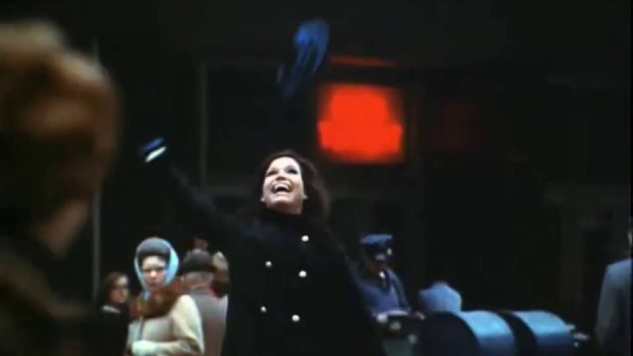The Best Sitcoms of 1976

By 1976 television was a thoroughly established entity. A lot of the kinks, so to speak, had been ironed out. There were adults who had never known life without a TV. The world of television was more diverse, and it had been around so long that people were already nostalgic for its past. There was even a Honeymooners reunion show on TV in 1976. For sitcoms, 1976 was a good, if insular, year—three of the shows on this list come from MTM Enterprises, another three from Norman Lear, and three of these shows are spin-offs of other shows on the list. With only three broadcast networks, there wasn’t a lot of opportunity to go around, and it’s not surprising that networks would want to stick with producers with a proven track record. After the wave of high-concept sitcoms in the 1960s, the ‘70s saw a renaissance for the form. It was a good time for sitcoms, but sort of an insular one, too, replete with spinoffs—several of which are included on this list. Without any further ado, here are the top 10 sitcoms that aired a season in 1976.
10. Mary Hartman, Marty Hartman
Norman Lear’s satire of soap operas didn’t feel like a traditional sitcom. It was a half-hour, but it aired five days a week, and instead of a network it was syndicated directly to local stations. It couched Lear’s typical focus on hot-button social and political issues (especially materialism, the cultural void of suburbia, and the rise of the mental health industry) within a satirical framework, finding absurd humor in the melodrama that soaps were known for, and in performances that were in some cases intentionally wooden and in others intentionally over-the-top. Despite its ridiculous storylines, the presentation was so dry that it’s easy to imagine viewers not even picking up on the satire. In other words, it was really good satire. It briefly made Louise Lasser a star (she hosted a first-season episode of Saturday Night Live in 1976, between ‘70s icons Elliott Gould and Kris Kristofferson) and introduced Martin Mull and Fred Willard to America. Mull and Willard co-hosted the talk show parody spinoffs Fernwood 2 Night and America 2-Night after Mary Hartman ended its two season run.
9. The Jeffersons
The Jeffersons is one of those shows that completely wore out its welcome over time. By the time it ended in 1985, it had been on the air for over a decade. In 1976, though, it was still new and at the height of its power. This show about a black family that has moved, in the words of the iconic theme song to the show, to a deluxe apartment in the sky was one of the many Norman Lear sitcoms that wasn’t afraid to deal with social and political issues. It was one of a few spinoffs of Lear’s first such blockbuster, All in the Family, and the best of the bunch. It’s not as successful as its progenitor—few shows are—but its importance cannot be overlooked, and in Sherman Helmsley it starred one of the great sitcom actors of all time.
8. Barney Miller
MTM Enterprises perfected the workplace sitcom, but they didn’t have a monopoly on the genre. Barney Miller’s ethnically diverse crew of beleaguered New York City detectives felt less like a family, as so many workplace sitcoms strive for, than a platoon from an old war film. You can tell they’ve seen some shit. Instead of Normandy or the Pacific, though, they’ve been displaced to a dingy police department at the nadir of New York’s 1970s decay. With a great cast headed up by Hal Linden and Abe Vigoda (whose character Fish got a short-lived spinoff of his own), and smart scripts that weren’t usually as broad as silly as you might expect from a sitcom, Barney Miller holds up better today than most sitcoms of the era.

-

-

-

-

-

-

-

-

-

-

-

-

-

-

-

-

-

-

-

-

-

-

-

-

-

-

-

-

-

-

-

-

-

-

-

-

-

-

-

-

















































